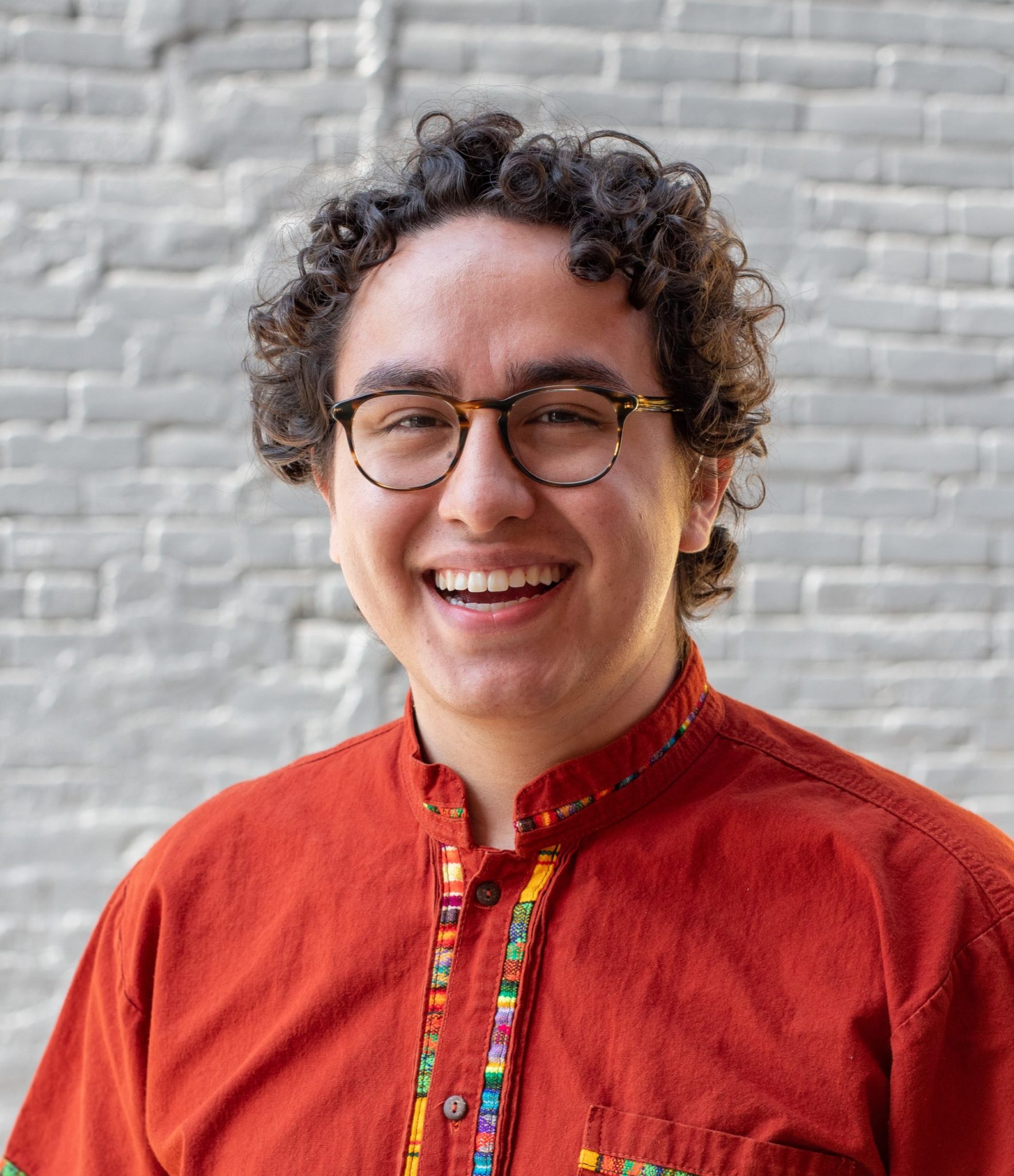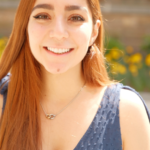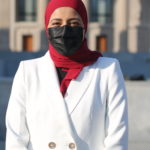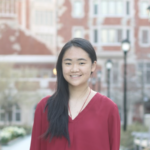
Courtesy of Joaquín Lara Midkiff
This interview is a part of a five-part series on the YCC candidates running for schoolwide office for the next academic year. This interview with Joaquín Lara Midkiff ’23 was conducted over Zoom. Lara Midkiff is currently a YCC senator and accessibility and disability policy chair, and is running for president alongside vice presidential candidate Jordi Bertrán Ramírez ’24. His responses have been lightly edited for clarity. You can find Lara Midkiff and Bertrán Ramírez‘s platform at www.expectmoreycc.com/vision.
Why are you running?
I’m from Oregon, and there’s a very active Latino community in Oregon. And my father was a labor rights organizer; my mother worked for the state of Oregon. So I came from a political family, and I grew up in and around civil action and civil movements, specifically the Chicano movement, and that was my advocacy baptism. When I got old enough, when I became an adult, I went to work for the Chicano movement. I went from holding my father’s hand to being also on the front lines. That’s my context in terms of advocacy.
And then I got to Yale, and there were a lot of things that are obviously amazing about Yale University, but there’s a lot of work to be done. A lot. There are real structural obstacles in the way of students interfacing and getting the most out of their Yale experience. A lot of that has to do with disability, and it has to deal with being able to navigate mental health, being able to afford your time at Yale, being students of color: All of these things are things that were immediately obvious to me, if for no other reason than because they applied to me directly. I was navigating these things. I immediately became invested in communities that I thought were in the most desperate need of advocacy — some of them I belonged to, some of them I didn’t, but I’m very proud of my last two years that I’ve spent here, really working for communities as a community and student organizer, transferring the skills I developed elsewhere to my Yale career.
I ran for student government last year because there were issues that I no longer could accomplish, or work effectively at, as a student organizer, in my view. There were certain privileges that student government had that I didn’t have as a single voice, albeit an organized voice. There’s something about student government, which I think might be unique to Yale, that really empowers students to work with administrators and student leaders in ways that no other position allows. So I ran, and I won, as a senator, and then I was appointed as an accessibility chair and I also became an affinity network director. In all of those capacities, we worked really hard and well, and I’m very proud of our record. When I say “our” I mean the community and the other student leaders and student government leaders. We got structural changes done in ways that, at least for the communities that I’ve advocated for, had never happened before.
When YCC elections started to be on the periphery, in January and February, it just made sense. How could I continue this fight? How could I continue helping students and empowering students, many of whom had never been helped or empowered before by student government? And the answer for that is seeking the presidency.
What issue matters most to you?
I take accessibility, and I define it very liberally. I define that as disability. I define that as helping people navigate mental health. I define that as being able to afford your time here — in other words, FGLI issues. I define it as how students of color interface and engage with an institution and a community which has historically maligned and disenfranchised students of color. I also define that in terms of academics, something that applies to the entire student body — no matter who you are or where you are, how do you navigate academics? And so this big question of access is probably the most fundamental thing for me. Improving access — empowering students to be able to get what they want out of their time here in a meaningful way — is so important, and something that hasn’t been framed that way before and that, I think, is really valuable.
What issues do you think matter most to Yalies?
When we empower the most vulnerable among us, we all benefit. So when we empower the 11 percent of students with disabilities, many of whom literally cannot engage with Yale in ways that others do, everyone benefits. If we engage with mental health and counseling, and how we make it better, everyone benefits. That 20 percent of students that engage with mental health and counseling? It’s going to go up once we can make it a better system to support students adequately. When we’re talking about how students can afford their Yale experience, when you remove financial barriers to entry, everyone benefits from that. Everyone benefits when there’s diversity and inclusion and empowerment and equity and everyone engages with ideas.
The hallmark of an institution of higher education is the exchange of ideas and the advancement of ideas. We fall short of that mission every day that underrepresented groups can’t engage and can’t share ideas. I can’t speak for other candidates, but I don’t see that vision in other people’s platforms.
We define health kind of broadly. We talk about actual health care. We talk about sexual assault and sexual wellness. Between the two of us, [Bertrán Ramírez and I] have a long history of really bolstering opportunities for gender minorities and sexual wellness for queer students. We tackle assault head on. We have a comprehensive plan for health care. How do we get students the health care they need while they’re on campus? Finally, we talk about environmental wellness and sustainability. This is the first time a YCC ticket has ever had a comprehensive sustainability policy running, and that’s a big deal.
We can’t fully act upon this vision without a fully functioning student government, which is less sexy for students, but it’s important. How do we navigate interactions with other student leaders, maybe ones that, historically, we haven’t done justice by?
Essentially, we have a plan that will allow historically and presently disenfranchised students to engage with their Yale experience. We are ensuring that students, when they do access their Yale experience, do it healthily and sustainably, and we have a plan to make sure it actually happens.
Why are you qualified?
I am the only person running that has made significant structural change to the University. Full stop. [I helped implement] the first new peer liaison program in 12 years, [institute] a fully funded peer mentor program, [ensure] that the vaccine rollout is equitable and inclusive of the needs of the student body, [and worked] with the governor’s office to ensure that the vaccine rollout meets the needs of the Yale community.
Essentially, the short of it is structural issues. If those matter to you, vote for me and for Jordi. Jordi also has a wonderful portfolio of accomplishments that I would consider structural. But I think that’s the long and short of it, is that together the two of us, but specifically me, have a track record of getting really big things done, and off the ground, and done well.
What do you want to get done in your term if you’re elected?
I think we have to ensure that reopening is not only equitable, but builds on some of the things we’ve learned this last year. We’ve learned hard lessons about what it means to engage with education and navigate Yale that we would never have otherwise learned. Taking lessons that we’ve learned this past year because of the pandemic, and taking them and bettering them when we return to a “new normal,” is really important.
Empowering students of color all across campus. It is not lost on me that I will be the first Indigenous student body president ever elected in Yale history, and I take that personally. I take that as a mandate to do right by underrepresented communities.
That takes on a whole lot of forms, it takes on tackling structural issues in terms of attrition rates amongst STEM [students]. We have a comprehensive platform for that. It talks about navigating policing on campus and how that disproportionately disadvantages students of color. It talks about empowering our Asian community and our Jewish community, which for the last year and a half, for a lot of reasons, have seen really high rates of anti-Asian hate and antisemitism.
Some of these are more concrete and less concrete. Some of it is a matter of leadership and inclusivity and how we animate and enact our vision, but a lot of it isn’t. A lot of it is about partnering with student organizations that are doing hard work.
We want to institute a zero-tolerance policy on rape. We want to help connect survivors. We want sustainable dining, and to offset the carbon footprint for Spring Fling. We want to advocate for a [Middle Eastern and North African] cultural center and a persons with disabilities cultural center. We want to move the Chaplain’s Office out of the basement of Bingham. It’s not a comprehensive list, but these are big issues, and everything I just said is attainable.
I’m very transparent about [what] YCC is, and its role and what it can actually accomplish. I have no naivete or pretension that we can accomplish things that student organizers have been fighting for for years, but we can do our part in advancing the argument.
Given our background and our experience affecting actually structural change, we have a host of things that are actually possible. Taking everything in sum, we have the ability to actually be able to enact things. Jordi and I represent a unique balance between organizers and actual structural movers and shakers. Between the two of us, Jordi and I have six student government positions, and we have two years of student government experience. We also are political organizers both outside Yale and at Yale. At least in the last 10 or 15 years, I can’t think of a ticket that has had that unique intersection of those backgrounds.
Correction, April 27: The article has been updated to reflect that Lara Midkiff is graduating in 2023, not 2024.











